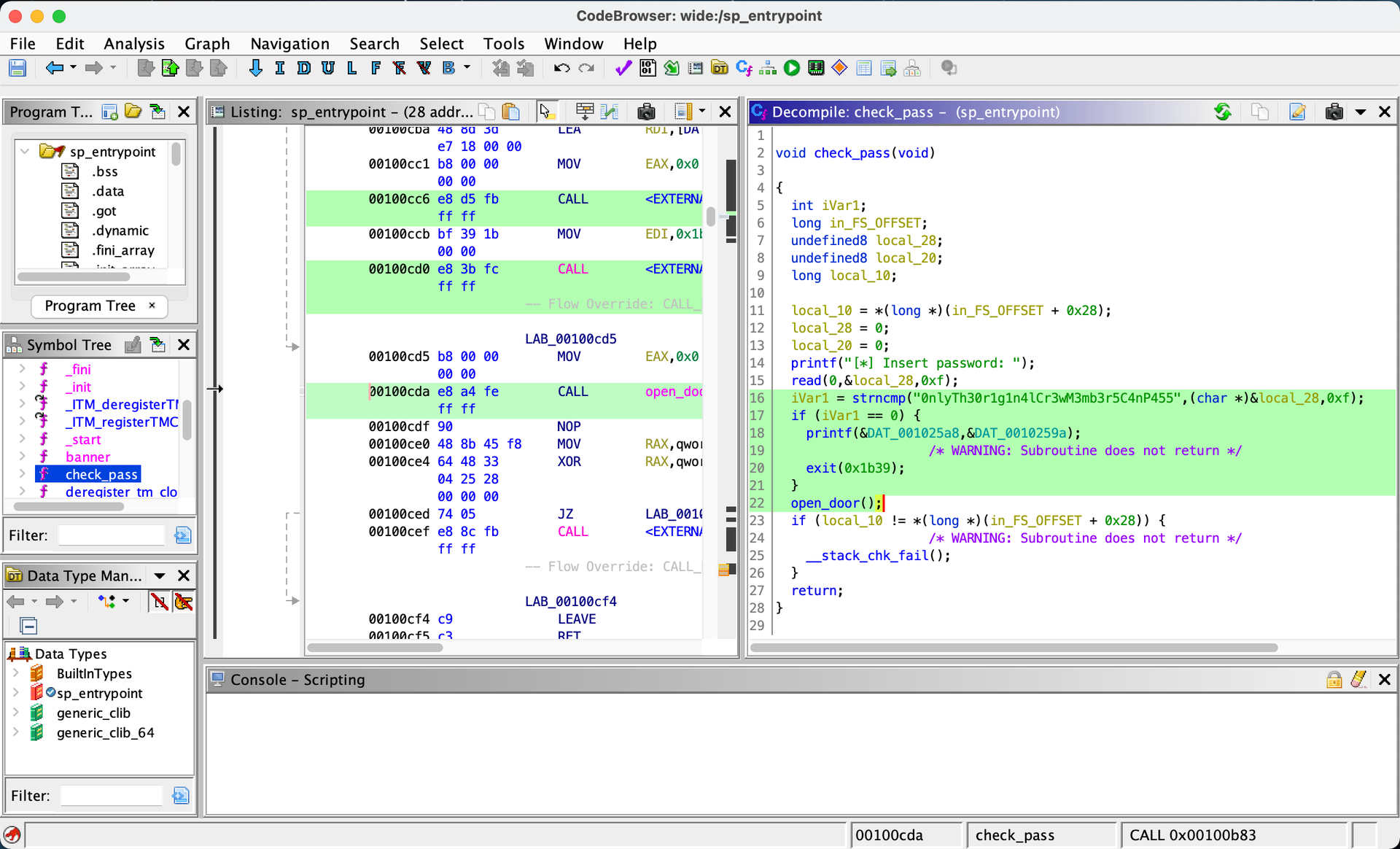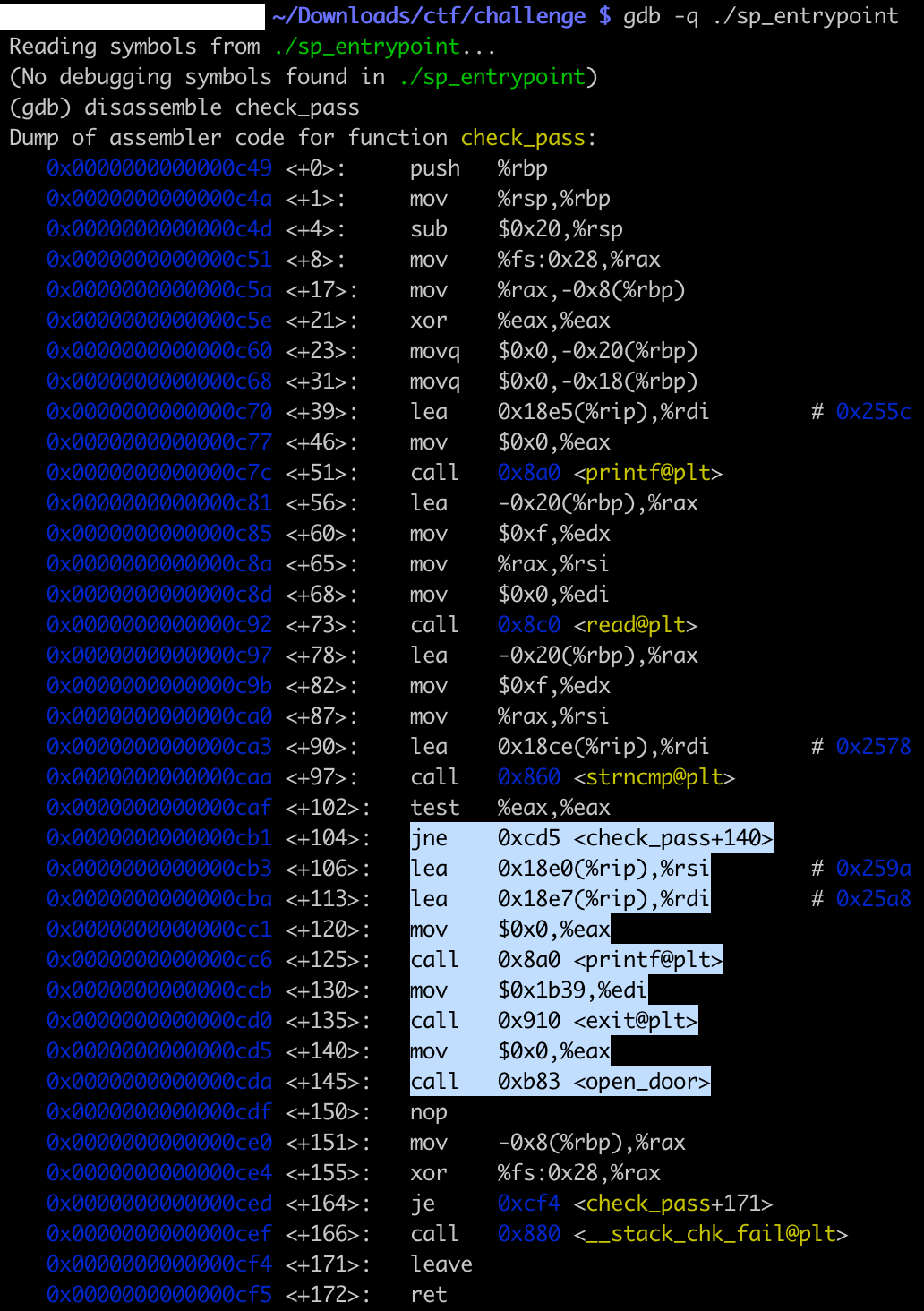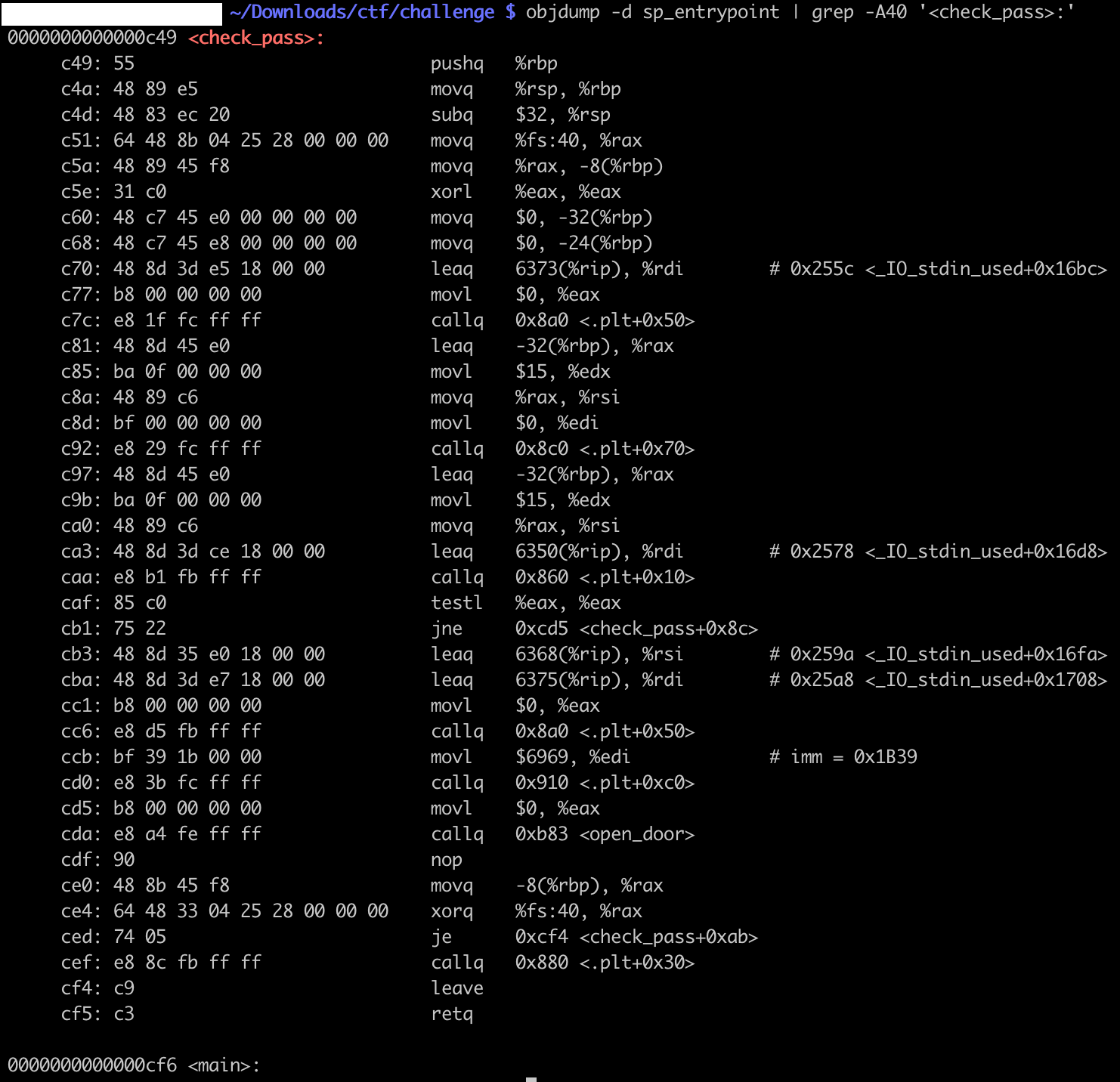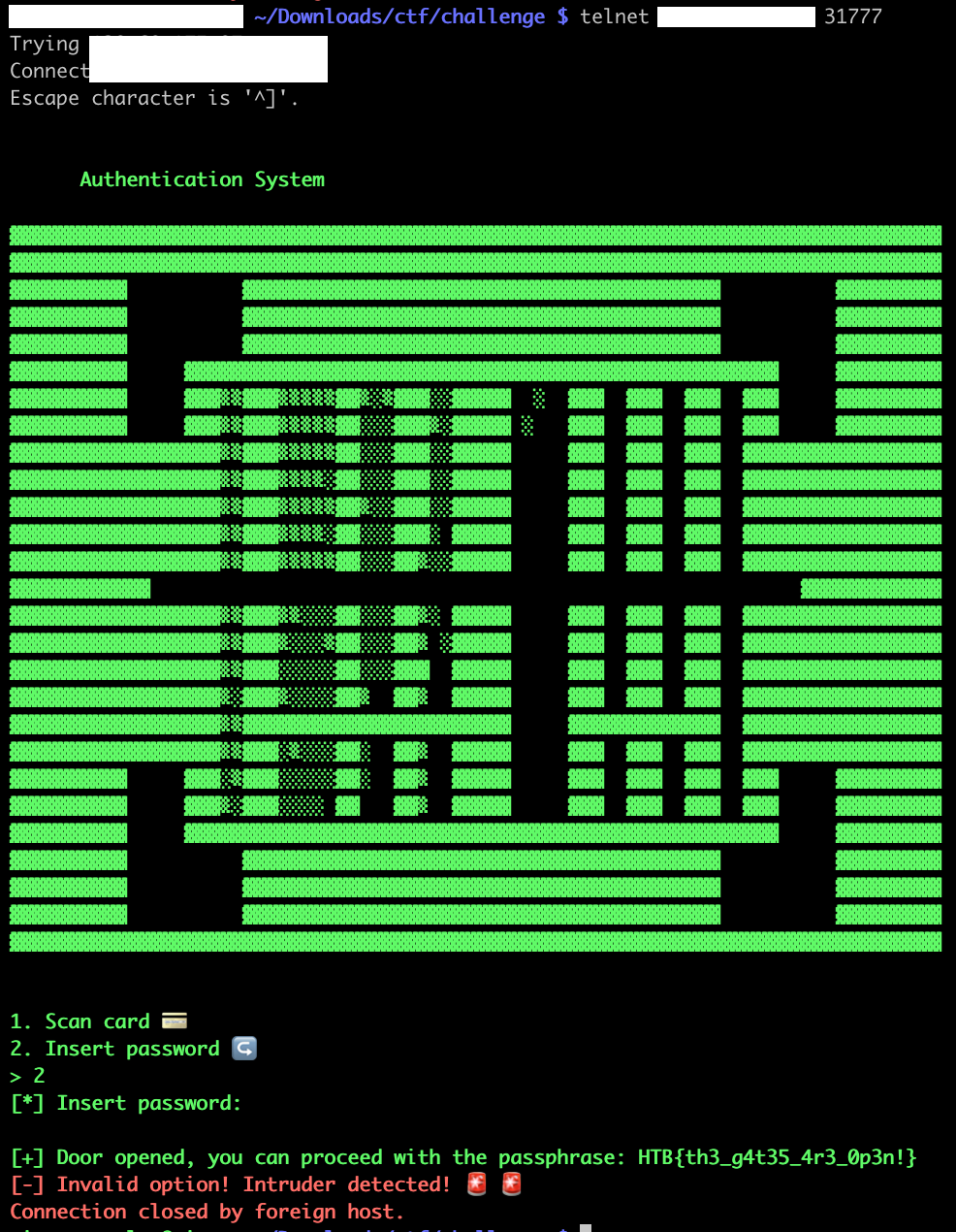[Pwn] Entrypoint
We are given a compiled binary. Trying the command strings on it reveals:
$ strings sp_entrypoint
./glibc/ld-linux-x86-64.so.2
qDcu
libc.so.6
[...]
%s[+] Door opened, you can proceed with the passphrase:
cat flag*
[*] Insert password:
0nlyTh30r1g1n4lCr3wM3mb3r5C4nP455
[1;5;31m
%s[-] Invalid password! Intruder detected!
1. Scan card
2. Insert password
[!] Scanning card.. Something is wrong!
Insert card's serial number:
Your card is:
%s[-] Invalid option! Intruder detected!
%s[-] Invalid ID! Intruder detected!
The 0nlyTh30r1g1n4lCr3wM3mb3r5C4nP455 does seem interesting. However after digging deeper, and opening the binary with NSA’s Ghidra, we find something odd:

If our input is successfully compared (return value 0) to the password previously found, there will be a warning and the program exits.
With the same logic, we can get this information about the check_pass function with command line tools such as objdump, or gdb:


We can get the manual pages of C functions in the Section 3 of man.
$ man 3 strncmp
STRCMP(3) Library Functions Manual STRCMP(3)
NAME
strcmp, strncmp – compare strings
LIBRARY
Standard C Library (libc, -lc)
[...]
DESCRIPTION
The strcmp() and strncmp() functions lexicographically compare the null-terminated strings s1 and s2.
The strncmp() function compares not more than n characters. Because strncmp() is designed for comparing strings rather than binary data, characters that
appear after a ‘\0’ character are not compared.
RETURN VALUES
The strcmp() and strncmp() functions return an integer greater than, equal to, or less than 0, according as the string s1 is greater than, equal to, or less
than the string s2. The comparison is done using unsigned characters, so that ‘\200’ is greater than ‘\0’.
What it means: in order to reach the open_door function call, we need to input anything different from 0nlyTh30r1g1n4lCr3wM3mb3r5C4nP455.
Let’s go!
Connecting to the challenge server, a host with a TCP port on which the input/outputs are redirected to the binary. We simply hit enter (so a null string, which is different from 0nlyTh30r1g1n4lCr3wM3mb3r5C4nP455). We get the flag HTB{th3_g4t35_4r3_0p3n!}
